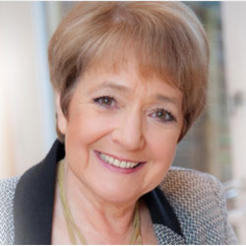The Charity Commission has been praised by Margaret Hodge, chair of the Public Accounts Committee, for a “real improvement” over the last year.
However the Committee raised questions over the performance of the Commission board and staff morale, during a session yesterday to take evidence from Paula Sussex, chief executive of the Commission.
The Committee also questioned the level of due diligence over new charities, the level of communication with agencies such as the police and HM Revenue & Customs, and the treatment of Muslim charities.
In 2013 and 2014 the Commission was subject to highly critical reports both from the PAC and from the National Audit Office.
A follow-up report from the NAO, published earlier this month, said the Commission had made “good early progress” in addressing these issues, but identified a number of areas where further improvement was possible.
The Commission launched a substantial change programme in September last year. Sussex told the meeting she was able to outline how the Commission would improve in response to six areas of concern raised by the NAO, and that following an £8m investment from the government there was now sufficient funding for the regulator to meet its responsibilities.
Hodge told Sussex yesterday that it was still “early days” for the Commission but she was pleased to see “a real improvement from where we were last time”.
Board performance under scrutiny
However Hodge questioned the performance of the Commission board, including the chair, William Shawcross.
“It feels to me that the board has been far too executive,” she said. “It doesn’t know what its role is.”
She also said she was worried about the widespread concern in the sector over the Commission’s governance.
Hodge quoted Andrew Hind, former chief executive of the Charity Commission and editor of Charity Finance magazine, who wrote earlier this year that the Commission had suffered “a continual stream of maverick interventions from the chair”. She said it was worrying that the board’s performance had also been criticised by NCVO and Acevo.
Sussex said that it was difficult for her to directly answer those concerns. “But I’m very comfortable that I know what my job is and that I have the support to do it,” she said.
Staff morale low
Hodge also raised the low level of staff morale at the Commission, following a survey last year which found extremely low levels of staff satisfaction.
“Staff morale is something where we need to do better,” Sussex responded. “We must do better at communicating with staff. We’ve worked very hard to bring forward the benefits of the transformation programme.”
Sussex said that staff were usually “most unsettled” at this point in a change programme and that she believed morale would improve as the benefits became clearer.
Scrutiny issues
Hodge also said that the Commission refused registration to too few charities, and this suggested that it was not doing sufficient due diligence.
However Sussex said that this was because many charities did not continue their applications when asked for further questions.
She said of 6,000 applications last year only 17 were refused registration, but around a quarter were discontinued.
Hodge also said that the Commission provided a lot of information to police and HM Revenue & Customs but did not get enough in response. Sussex said that she was currently in discussions with other agencies and was confident of getting the correct level of information from other sources.
Muslim charities
Sussex suggested the Commission may start to tag charities it investigates by religion in order to counter accusations of bias against Muslims.
Hodge said she did not agree with the Commission’s existing policy of not tagging the religious denomination of charities it investigated, because it did not allow the Commission to monitor whether there was bias.
“I’m not sure it’s right not to tag,” she said. “You need to monitor that to ensure there isn’t any bias entering your judgements.
"You don’t know whether there's a bias if you don’t monitor. The stories in the press suggest there is a bias, and you need to satisfy us that there isn’t.”
Sussex said it was "tremendously important" that there was no institutional bias.
"You may well be right that we do need to set up a system where we do need to code against certain sections of the register,” she said.










